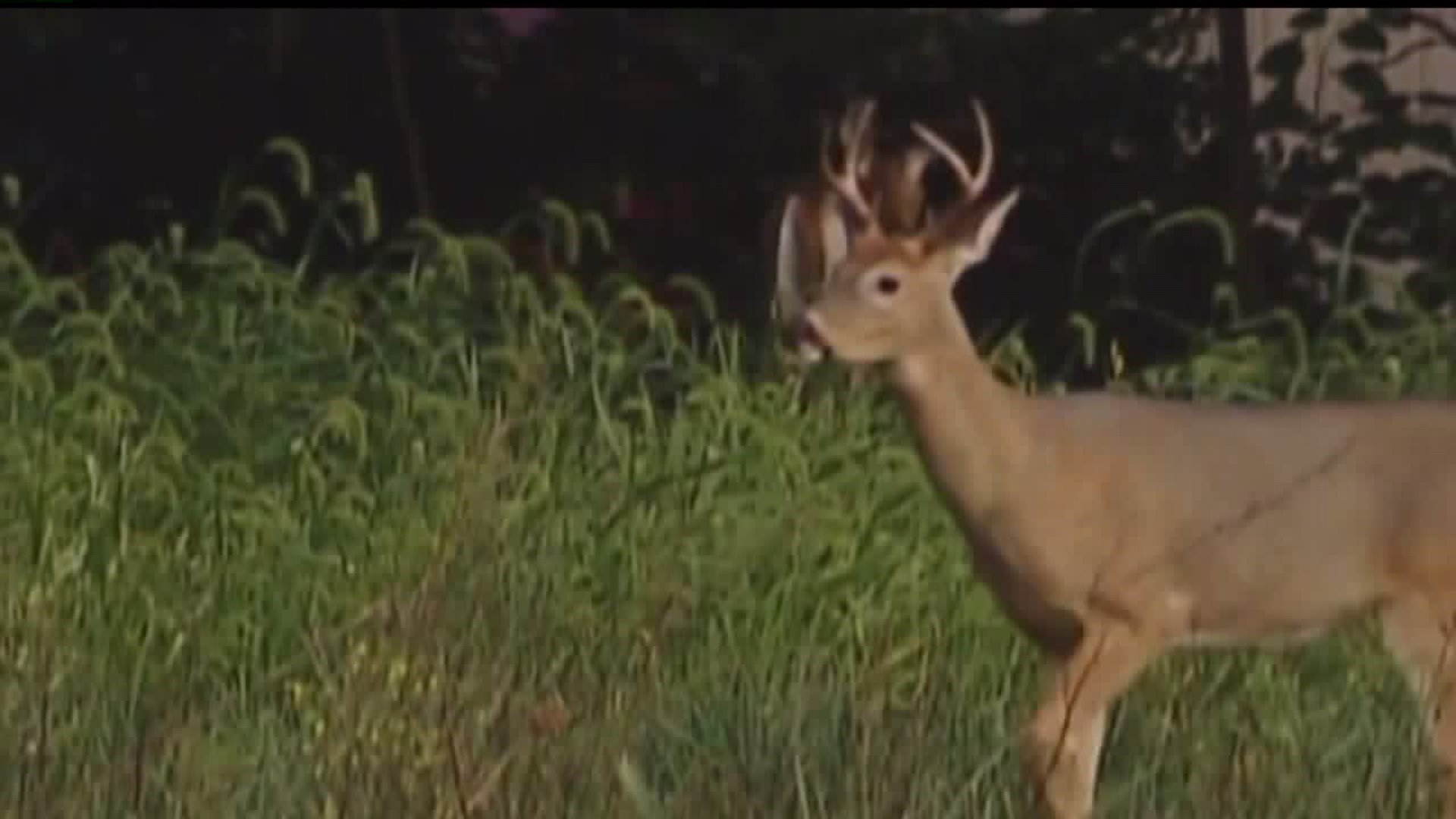HARRISBURG, Pa. — Note: The video above is from February 2019.
The Pennsylvania Department of Agriculture this week released its recommendations for best management practices for hunters looking to protect themselves and their families from Chronic Wasting Disease, a fatal neurological disorder that can affect deer, elk, moose, and caribou.
“As fall washes over the commonwealth and Pennsylvania’s more than 850,000 licensed hunters move to the woods, we encourage them to keep health and safety in mind,” said Agriculture Secretary Russell Redding. “With a few simple steps, hunters can protect themselves and their families, or those they’ve donated venison to, from any risks associated with CWD.”
Since being identified in Pennsylvania, hunters have had a heightened awareness of CWD.
The following best management practices are recommended to be adopted by Pennsylvania’s hunters and processors by the Dept. of Agriculture:
- Do not shoot, handle or eat meat from wild deer or elk that look sick, are acting strangely or are found dead. However, keep in mind that most CWD-infected deer do not look or act sick.
- Report any sightings of sick or abnormal-acting wild deer or elk to the PA Game Commission.
- If you are hunting in or near a disease management area, place your deer’s head in PA Game Commission collection containers to submit it for CWD testing.
- If you have your deer or elk commercially processed, consider asking that your animal be processed separately to avoid mixing meat from multiple animals.
- It is recommended that processors take extra care to thoroughly clean equipment after processing each wild deer.
- When field-dressing or processing deer:
- Wear latex or rubber gloves.
- Minimize how much you handle the organs, particularly brain or spinal cord tissue.
- Do not use household knives or other kitchen utensils for field dressing.
- Double bag high-risk parts and dispose of in an approved landfill.
“At this time, current published scientific studies support the hypothesis that there is a strong species barrier protecting humans from CWD,” said State Veterinarian Dr. Kevin Brightbill. “To date, there have not been any documented cases of humans being infected with CWD.”
After considering published scientific studies and best management practices, if hunters hunting outside of a Disease Management Area are still concerned, they can have their deer tested for an $80 fee through the PA Animal Diagnostic Laboratory System.
A FAQ on testing locations, fees and process can be found on the PADLS website or to learn more about CWD in Pennsylvania visit pgc.pa.gov.

